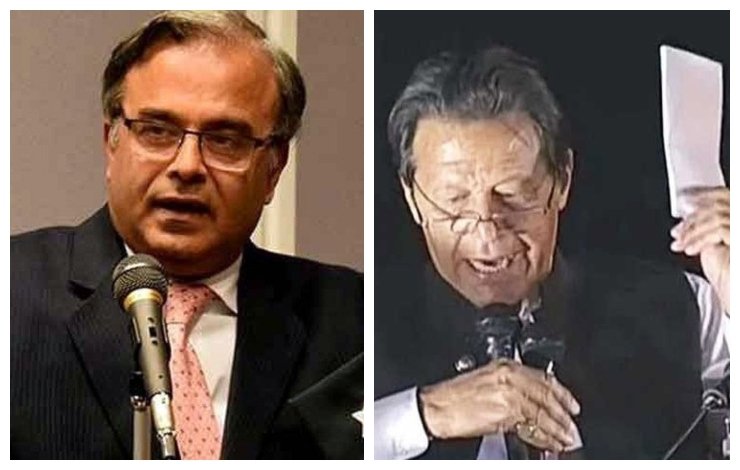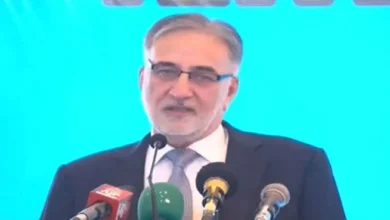Ex-foreign secretary Asad Majeed becomes witness in cipher case

Former foreign secretary Asad Majeed has become another witness in the cipher case against PTI chief Imran Khan, saying that the latter’s affairs pertaining to the diplomatic cable affected Pakistan’s image.
“The PTI chairman’s cipher affair damaged Pakistan’s communication system,” he said in his statement recorded before the court. “It has also affected the credibility of our diplomats and their future diplomacy.”
The cipher case pertains to a diplomatic document that reportedly went missing from Khan’s possession. The PTI alleges that the document contained a threat from the United States to oust Imran from office because of his stance on Russia.
Majeed was the ambassador to the US when the cipher controversy started and the PTI made allegations against America.
Since March 7, Majeed said that he has neither met the former prime minister nor had any direct or indirect conversation with him.
The former foreign secretary added that neither he ever met nor talked to the prime minister’s special assistant. “I invited US Department of Defense Assistant Secretary Donald Lu on March 7 to meet at the Pakistan House in Washington, which had already been scheduled for lunch.”
With the inclusion of Majeed, the number of witnesses in the case has increased to 28. Former interior ministry secretary Yusuf Naseem Khokhar is the complainant in the case, while Aftab Akbar Durrani, Asad Majeed, Muhammad Azam Khan, Dakar Haseeb Bin Aziz, Sajid Mehmood, Faisal Niaz Timrezi, Noman Bashir, Mohammad Ashfaq, and Haseeb Gohar are among the witnesses.
Imran Khan made targeted plan against army
In his statement, former principal secretary Azam Khan claimed that the PTI chairman made a targeted plan against the army and the National Assembly speaker gave the ruling regarding the cipher on the instructions of the PTI chairman.
Azam accused Khan of making a plan for political purposes and avoiding a no-confidence motion by targeting the army in the cipher case. He went on to add that the former prime minister wanted to pressurise the institutions to seek help in the no-trust motion.
The former principal secretary further added that the former premier received a copy of the cipher and later said that the copy was missing.
He further said that the foreign secretary asked them to hand over the copy of the cipher to the PM on March 9. Khan reviewed the document and gave his recommendation and described cipher as an “American blunder”. He apparently called for creating an effective narrative against the opposition and institutions and when the no-confidence motion was tabled the cipher was linked to it.
The former principal secretary alleged that the former prime minister wanted to present the cipher as a foreign conspiracy to the public and prove himself the victim of it.



